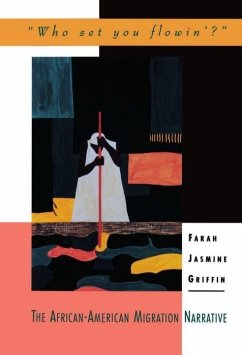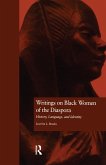This is a study of migration as depicted in African-American literature, letters, music and painting. Covering the period 1923-1992, the author identifies the "migration narrative" as a dominant African-American cultural tradition.
Twentieth-century America has witnessed the most widespread and sustained movement of African-Americans from the South to urban centers in the North. Who Set You Flowin'? looks at this migration across a wide range of genres - literary texts, correspondence, painting, photography, rap music, blues, and rhythm and blues - and identifies the Migration Narrative as a major theme in African-American cultural production. From these various sources Griffin isolates the tropes of Ancestor, Stranger, and Safe Space, which, though common to all Migration Narratives, vary in their portrayal. She argues that the emergence of a dominant portrayal of these tropes is the product of the historical and political moment, often challenged by alternative portrayals in other texts or artistic forms, as well as intra-textually. Richard Wright's bleak, yet cosmopolitan portraits were countered by Dorothy West's longing for Black Southern communities. Ralph Ellison, while continuing Wright's vision, reexamined the significance of Black Southern culture. Griffin concludes with Toni Morrison and rappers Arrested Development embracing the South "as a site of African-American history and culture", "a place to be redeemed".
Twentieth-century America has witnessed the most widespread and sustained movement of African-Americans from the South to urban centers in the North. Who Set You Flowin'? looks at this migration across a wide range of genres - literary texts, correspondence, painting, photography, rap music, blues, and rhythm and blues - and identifies the Migration Narrative as a major theme in African-American cultural production. From these various sources Griffin isolates the tropes of Ancestor, Stranger, and Safe Space, which, though common to all Migration Narratives, vary in their portrayal. She argues that the emergence of a dominant portrayal of these tropes is the product of the historical and political moment, often challenged by alternative portrayals in other texts or artistic forms, as well as intra-textually. Richard Wright's bleak, yet cosmopolitan portraits were countered by Dorothy West's longing for Black Southern communities. Ralph Ellison, while continuing Wright's vision, reexamined the significance of Black Southern culture. Griffin concludes with Toni Morrison and rappers Arrested Development embracing the South "as a site of African-American history and culture", "a place to be redeemed".








